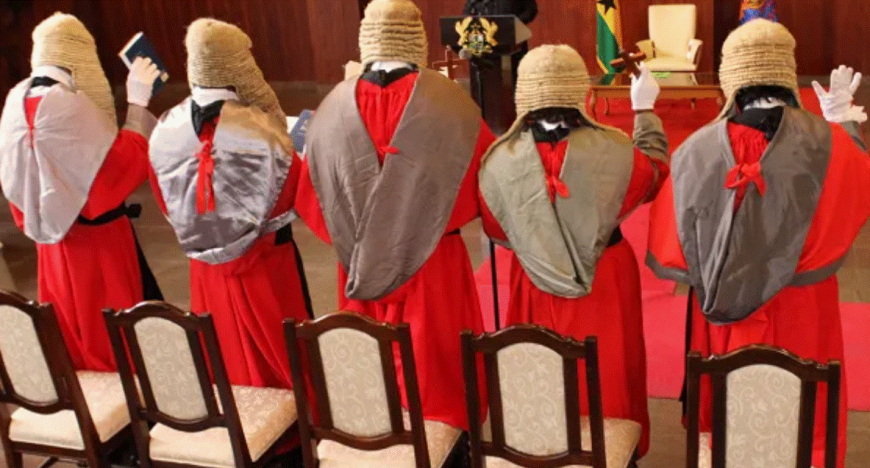Asset Declarations: Sulemana Braimah Alleges Some Supreme Court Justices Have Not Complied
Sulemana Braimah alleges that some Supreme Court Justices in Ghana have failed to comply with mandatory asset declaration laws, raising concerns over judicial transparency and accountability.

⚖️ Allegations of Non-Compliance
Braimah’s claims echo past concerns first raised by former Auditor-General Daniel Yaw Domelevo, who in February 2025 publicly criticized members of the judiciary—including Supreme Court justices—for neglecting to declare their assets. Domelevo stated:
“when we started…it was clear that even the judiciary…didn’t declare…including…Supreme Court” jurists
Despite clear constitutional obligations and ongoing pushback from civil society, enforcement of these requirements remains weak. Braimah revealed that oversight bodies such as the Commission on Human Rights and Administrative Justice (CHRAJ) have taken no disciplinary action, citing a lack of prescribed penalties
???? What the Constitution Says
Under Ghana’s 1992 Constitution, justices of the Superior Courts must declare their assets upon entry into office—and periodically thereafter. However, the law grants CHRAJ and the Chief Justice broad authority to “take such action as [they] consider appropriate” in response to non-compliance, without specifying actual sanctions
???? Why It Matters
-
Transparency & Trust: Asset declarations enhance public confidence in the judiciary by revealing judges’ financial interests.
-
Conflict Prevention: Without disclosure, corruption and undue influence become harder to detect and prevent.
-
Enforcement Gaps: The absence of clear penalties and poor implementation by regulatory bodies risk rendering the requirement meaningless.
✅ Moves Towards Accountability
In May 2025, President John Mahama introduced strict penalties for political appointees—requiring them to declare assets by March 31 or face forfeiture of up to four months’ salary and dismissal—highlighting a growing national intolerance for asset-related non Nonetheless, these measures currently apply only to executive appointees, not the judiciary.
????️ Calls to Action
Civil society groups, including Sulemana Braimah, are urging:
-
Clear Sanctions: Codify specific penalties for judges who fail to declare assets.
-
Publish Declarations: Make asset declarations publicly accessible, not just known to internal authorities.
-
Independent Oversight: Strengthen or establish a dedicated body to monitor and enforce compliance.
???? Conclusion
Braimah’s allegations have sparked renewed debate on judicial transparency in Ghana. Without enforceable penalties or a public-facing asset registry, the judiciary remains vulnerable to opacity and eroding public trust. As calls for reform intensify, pressure is mounting on Ghana’s institutions to ensure accountability applies equally to all branches of government.
What's Your Reaction?




















































































